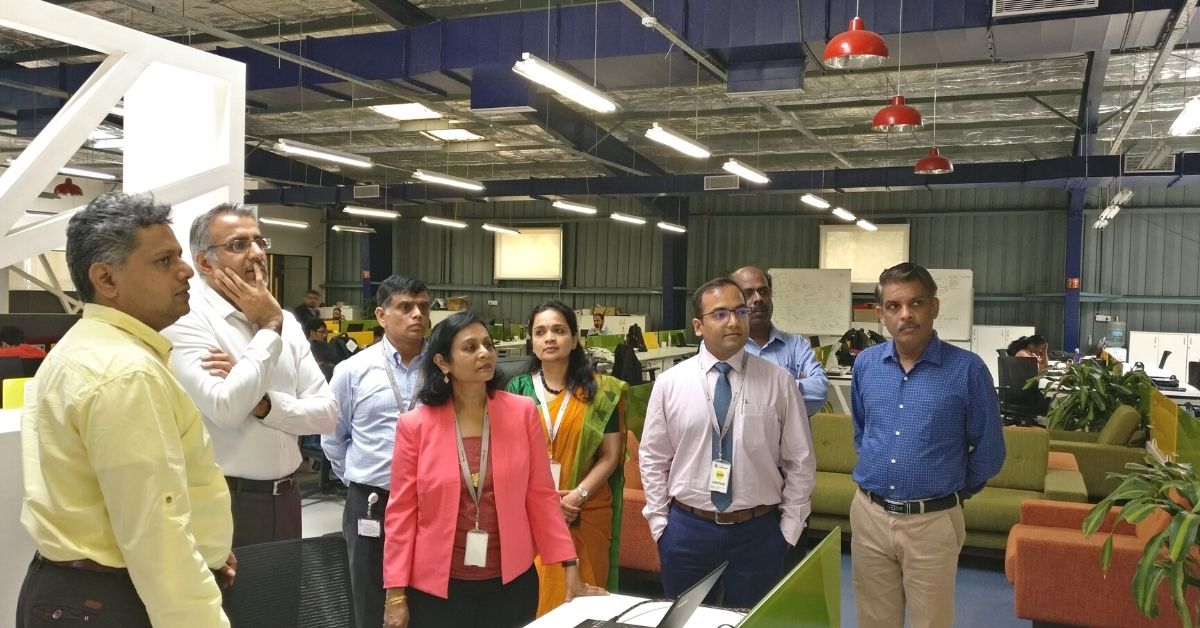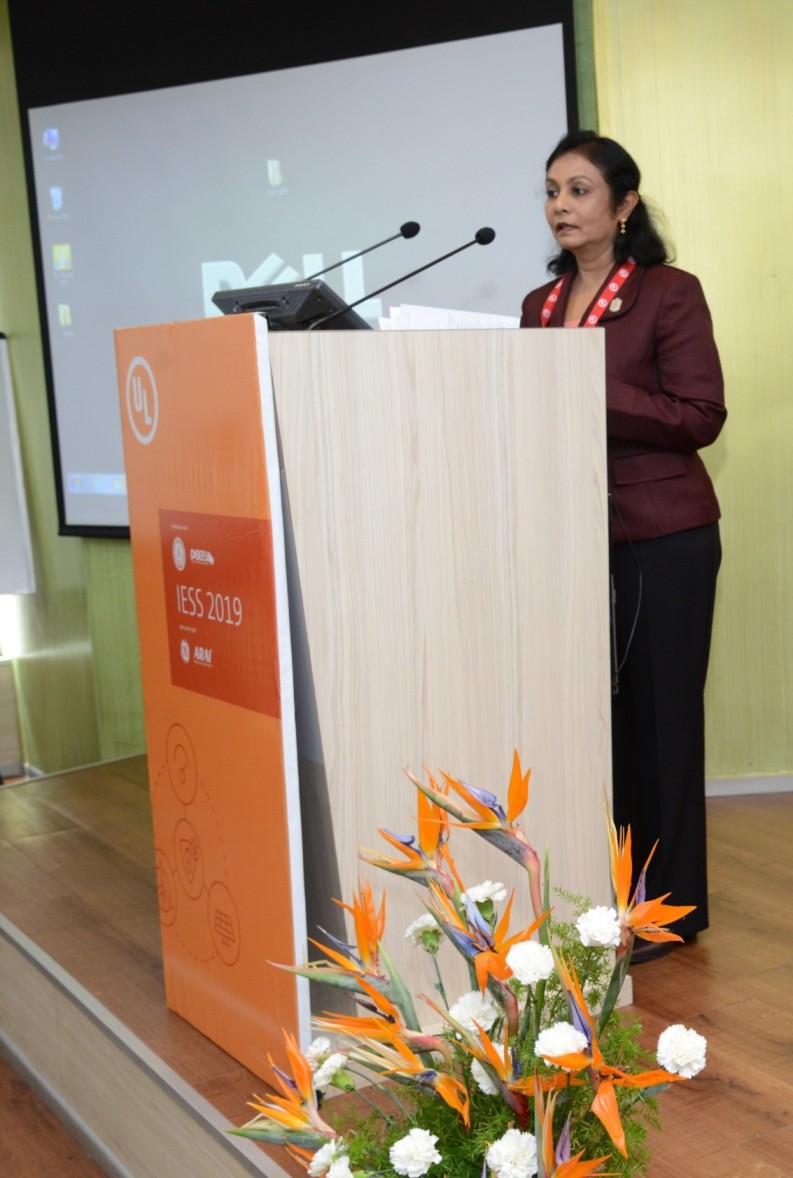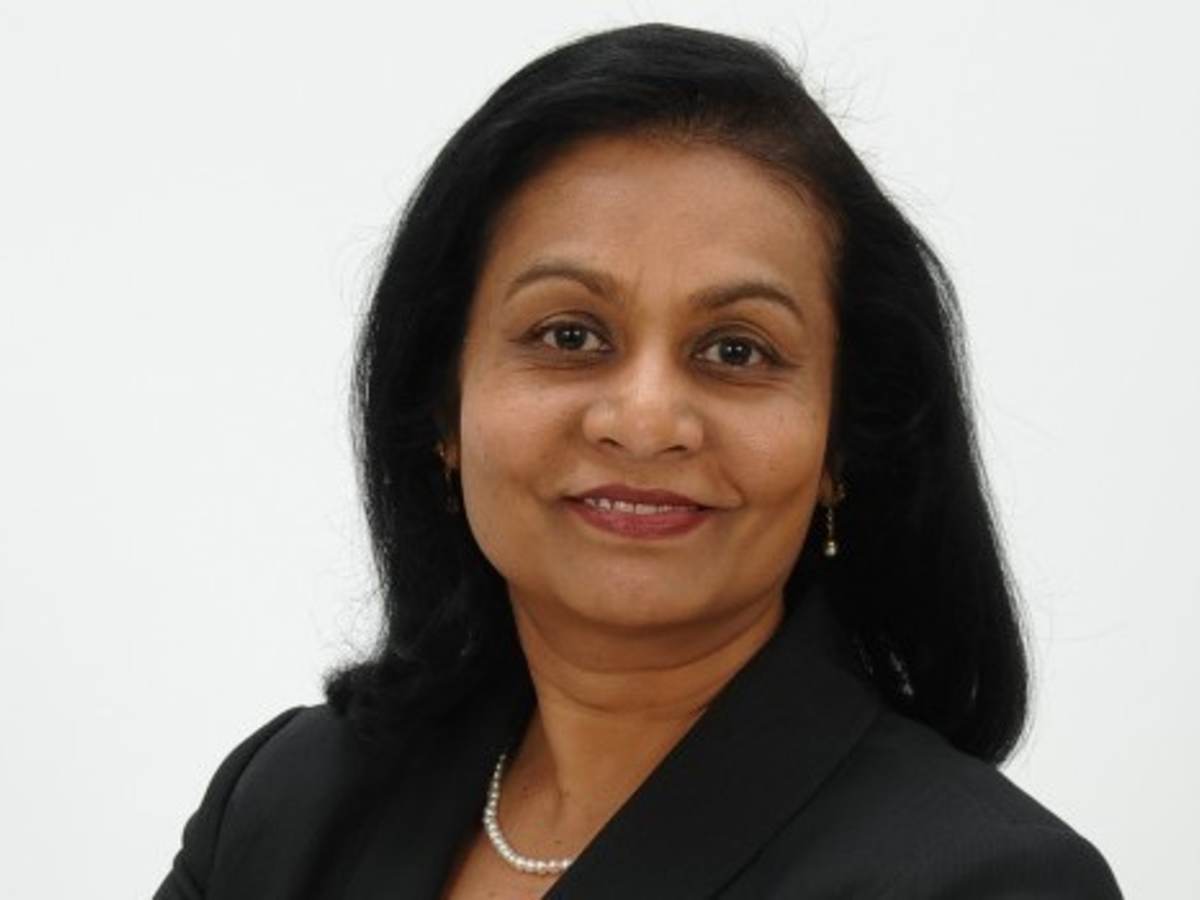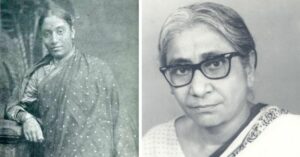This Scientist’s Work on Lithium-ion Battery Safety Helped Keep NASA Astronauts Safe
Dr Judy Jeevarajan, the vice president and executive director of Research, Electrochemical Safety Research Institute at Underwriters Laboratories Inc, is a trailblazer and former NASA scientist who paved the way for several innovations related to batteries and safety.

This article has been published in association with Underwriters Laboratories Inc.
Dr Judy Jeevarajan considers herself grateful to have grown up around inspiring women. A common virtue she noticed in her mother and her grandmother was their perseverance and zeal to work hard — a mantra she has since religiously followed on her path to success.
From a wide-eyed teenager connecting the world around her with concepts printed in her science books to becoming a trailblazer NASA scientist and an expert on battery safety with a focus on lithium-ion cells, Dr Judy has come a long way — becoming an inspiration. Today, she is the vice president and executive director of the Electrochemical Safety Research Institute at Underwriters Laboratories Inc.

“I’ve been interested in science since I was a kid and that passion for it never really faded through the years, thanks to the amazing teachers I had in school and college. But more than that, it was my passion to solve a problem that I think has continued to motivate me,” says Dr Judy, for whom every problem is a story waiting to be unfurled.
Her journey from becoming an expert in battery safety to joining NASA is the perfect example of this.
Batteries in Space
“When I finished graduate school with a PhD in Electrochemistry, I got a job in a small business company and my first project was to make room temperature, ionic, liquid electrolytes for lithium-ion batteries. That was my first introduction into the field of batteries, whereby I spent a year as a post-doctorate at Texas A & M University, working on a NASA project on lithium-ion batteries. At the time, I had no direction and was just asked to study them. Lithium-ion batteries, at the time, were very new and their optimisation and commercialisation were at a nascent stage. I started gathering cells from Sony, Sanyo, Panasonic, SAFT and so on and studying them in my lab. I also began to make my own electrodes and tried to set up a glove box,” she says.
It was around the same time that her husband got a job as a NASA contractor and they had to move to Houston. Her knowledge and expertise with lithium-ion batteries finally landed her a job over one weekend as a NASA contractor, and thus began her journey.
To work on batteries that were to be flown in a human-operated space flight was an interesting and exciting opportunity for her, one that she took very seriously.
“When I was there [at NASA], we had a zero-tolerance policy. These batteries were being flown in space for a human-rated environment, in a confined space. I took it very seriously because there were lives at stake. For the crew members, it was a high-risk situation if there was a fire and as the team of scientists behind it, we had to ensure that safety was our top priority. Hence, we never took shortcuts, did the hard work and did everything in our capacity to reduce any risk whatsoever. And for all this, my data had to be irrefutable,” shares Dr Judy.
However, being a woman of colour came with another set of challenges to overcome.
“You are constantly competing with people who have had better opportunities and better communication skills. But I always had faith in my knowledge and experience and was able to express my work well. For that, I always had to work extra hard and ensure that my data was on-point and people did recognise that,” she adds.
An Inspiration to Many
Back in 2013, Dr Judy, a NASA senior scientist at the time, met Harry Jones who was leading a research project at Underwriters Laboratories ( UL). This sparked a collaborative research opportunity on methods of stimulating internal shorts in lithium-ion cells. Their combined efforts complemented by Dr Judy’s impressive work at NASA helped table the proposal to the UL standards committee for improved performance and safety testing.

“The collaborative research that Harry Jones and I conducted mirrored the values and experiences I was having at NASA. It also allowed me to see the larger role UL was playing in battery research across multiple applications, including the future of consumer electronics, stationary energy storage and electric vehicles,” says Dr Judy in an article.
Over the years, the battery industry has evolved on a huge scale. From using lithium-ion cells in portable and small electronic equipment to massive power and energy systems used in aviation, automotive, residential, commercial and space, it has come a long way. This exponential growth in the industry warrants increased safety measures and testing standards, a gap that Dr Judy is filling through her work at UL.
“The battery safety research I did at NASA was extensive and served as a catalyst for the standards and testing I now help UL develop and oversee. Accepting the role with UL seemed like a natural progression for me,” she says.
Today, an inspiration for women aspiring to work in the technical field, Dr Judy believes perseverance and passion have been the constant attributes steering her path to impactful work.
Her life’s work was recently showcased through a podcast organized by Underwriters Laboratories as part of the Word to the W.I.S.E. ( Women in Science and Engineering) campaign. This podcast series involves interviews with remarkable women like Dr Judy, who have chosen science and engineering as a career and have dedicated their lives to creating a safer, more secure and sustainable future. Through Word to the W.I.S.E, Underwriters Laboratories hopes to build on our legacy that drives transformative change in pursuit of a safer and more resilient society, by inspiring more young women to a career in the field of STEM.
You can nominate more such women to be a part of the show or send in your questions for future guests on the Word to the WISE podcast. Visit here for more information.
This story made me
- 97
- 121
- 89
- 167
Tell Us More
We bring stories straight from the heart of India, to inspire millions and create a wave of impact. Our positive movement is growing bigger everyday, and we would love for you to join it.
Please contribute whatever you can, every little penny helps our team in bringing you more stories that support dreams and spread hope.



















